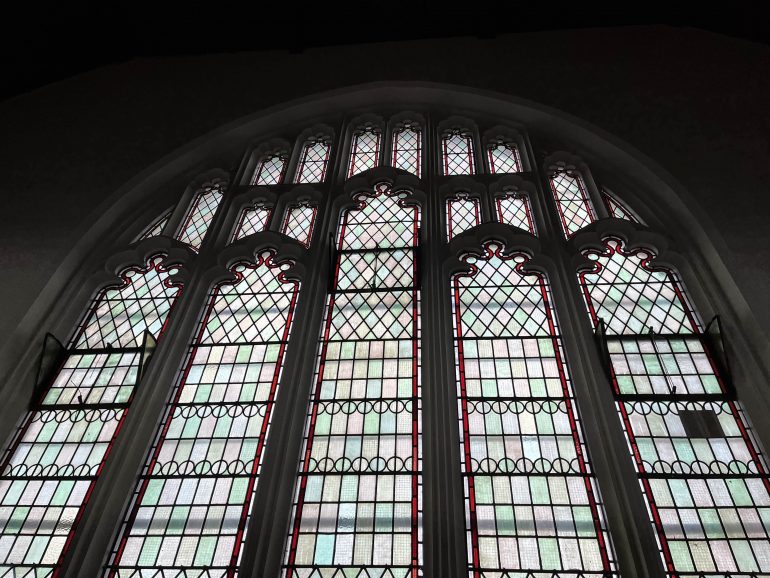I took a look inside four Cardiff churches to find out how different communities mark the festival, and it’s not what I expected
FEWER people in the UK identify as Christian, according to the recent census – and many people seem to forget that Christmas is traditionally a religious festival.
Caerphilly and Rhondda Cynon Taf are the Welsh local authorities with the fewest Christians, tied at 36.4%.
And Cardiff isn’t too far off – only 38.3% of people identify as Christian here, and 42.9% as non-religious. There are more non-religious people in Cardiff than there are Christians.
We often see Christmas as a time to indulge in junk food, ignore work emails, and binge-watch our favourite Hugh Grant movies.
But for Cardiff’s diverse Christian population, traditions look very different.
Armenian Community Centre, Llandaff
Historically, churches around the world celebrated Jesus’ birth on January 6 until the fourth century, but the Armenian Apostolic Church still insists on this date.
This is because December 25 was traditionally designated for the Roman festival Sol Invicti, celebrating the birth of the sun god.
Few pagan traditions remain today because of the Christian presence, explains Alice Kanekanian, 50, who is part of the church community.
“We still celebrate the pagan Vardavar festival on July 16,” said the Cardiff council employee. “This involves drenching each other with water.”
To encourage Christianity’s expansion in the West, Christmas Day was moved to December 25, rather than competing with the popular Roman holiday.

However, Alice stresses that it’s the period before Christmas Day that is the most important for her faith.
She said: “Many Armenians fast for a week, abstaining from as many animal products as possible, until Christmas Eve on January 5.
“We break our fast with light foods like soup and fish to ease ourselves into the rich feast on Christmas Day.”
Alice tells me of an Armenian Christmas pudding baked with a coin inside it.
“Whoever is lucky enough to cut that slice is blessed with good fortune for the next year.”
On Christmas Day, the Blessing of Water ceremony is conducted. This commemorates Christ’s baptism.
“We then gather to pray and light candles. We’re not technically a church but we do have a chapel room. The services are conducted in Armenian.”
Shortly after the Christmas period, Alice and her community will commemorate those who have died.
It’s called Merelotz and takes place on January 9. Families gather to visit the graves of their loved ones. Historically, this was an all-day event.
Cardiff’s Armenian Community Centre will run celebrations from December 28 to January 8.
Cardiff Tamil Church, Riverside
I was welcomed with open arms by Pastor Monickam, a 51-year-old Tamil man, and his wife Shanti, a nurse.
South Asian pastors may not be a visible part of the community but Tamil Nadu, from where the pastor hails, has a large Christian population.
Christianity is the second largest religion in the South Indian state, after Hinduism.
Cardiff Tamil Church is Pentecostal, and the community celebrates Christmas on December 25, like much of the Western world.
Pastor Monickam gave me a tour of the beautiful Seventh-Day Adventist Church where Cardiff’s Tamil Church is based. It is also used by Cardiff’s African Christian community.
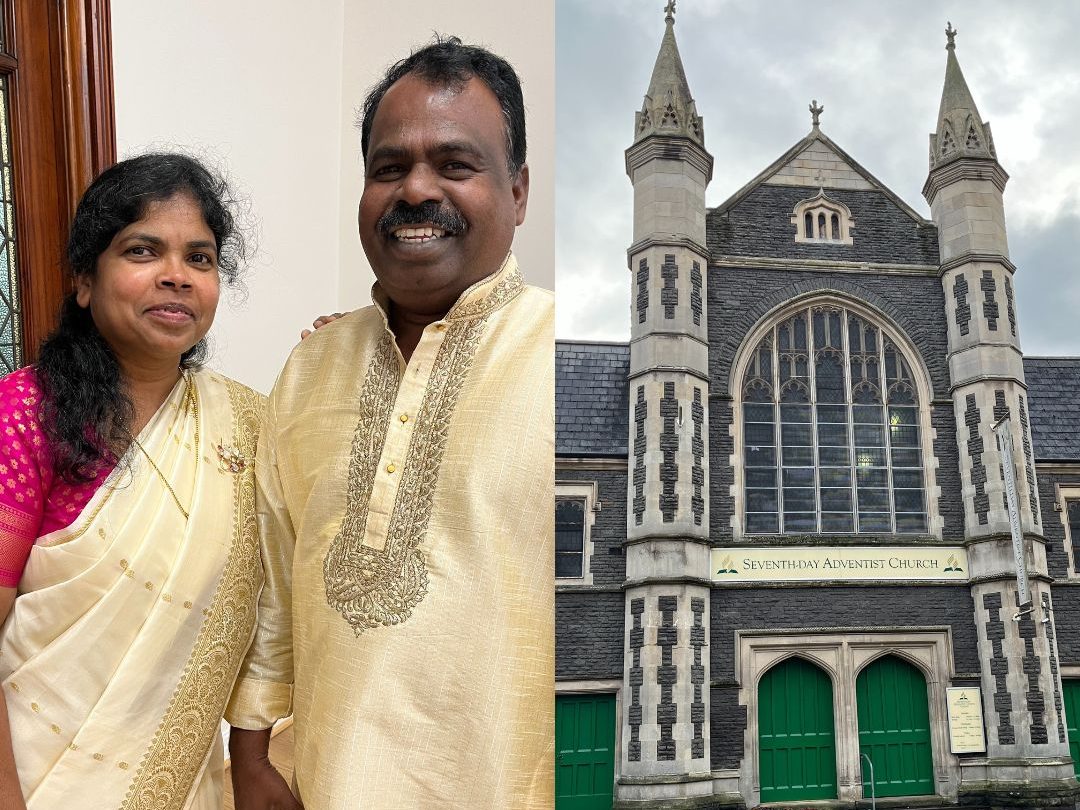
While it appeared pretty conventional at first, what was striking was its very Indian feel.
Pastor Monickam handed me a plate as soon as we headed upstairs for the lavish feast after Sunday service, insisting I eat with them.
As soon as I entered, I was confronted with spicy aromas akin to what you may find in a South Indian street market, and surrounded by women carefully draped in colourful cloth, ready to fill my plate with traditional dishes such as daal and rice.
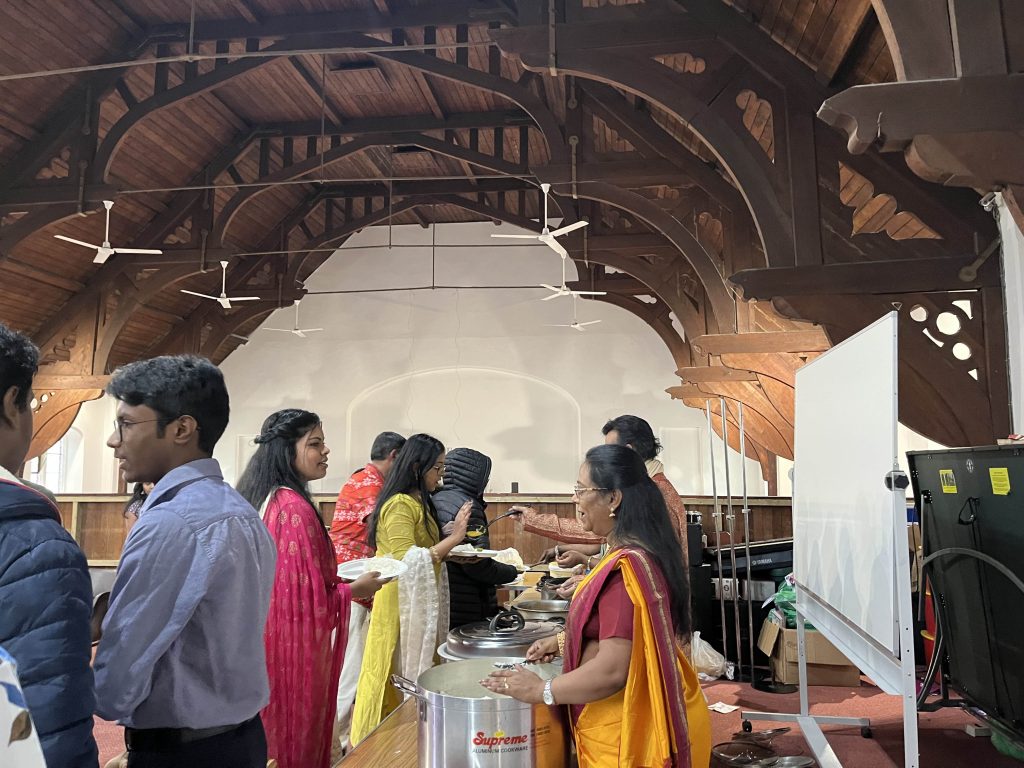
“We may not have Christmas crackers, but we do exchange presents,” said 16-year-old A-level student Johana Albert.
“A tradition of ours is giving traditional Indian sweets to our neighbours and lighting fireworks.”
British traditions that Cardiff’s Tamil Church have incorporated into their festivities include Christmas trees.
Feeling cut off from mainstream strands of Christianity, Johana says her fellow Tamils find it hard to believe that she is Christian.
“When you think of Christians, you often think of Anglicans or Catholics, but we are neither.
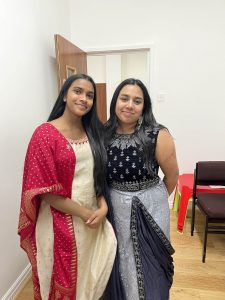
Lots of people assume we’re Hindu because we wear Indian clothes, but clothes don’t have a religion.”
Johana Albert, A-level student, 16
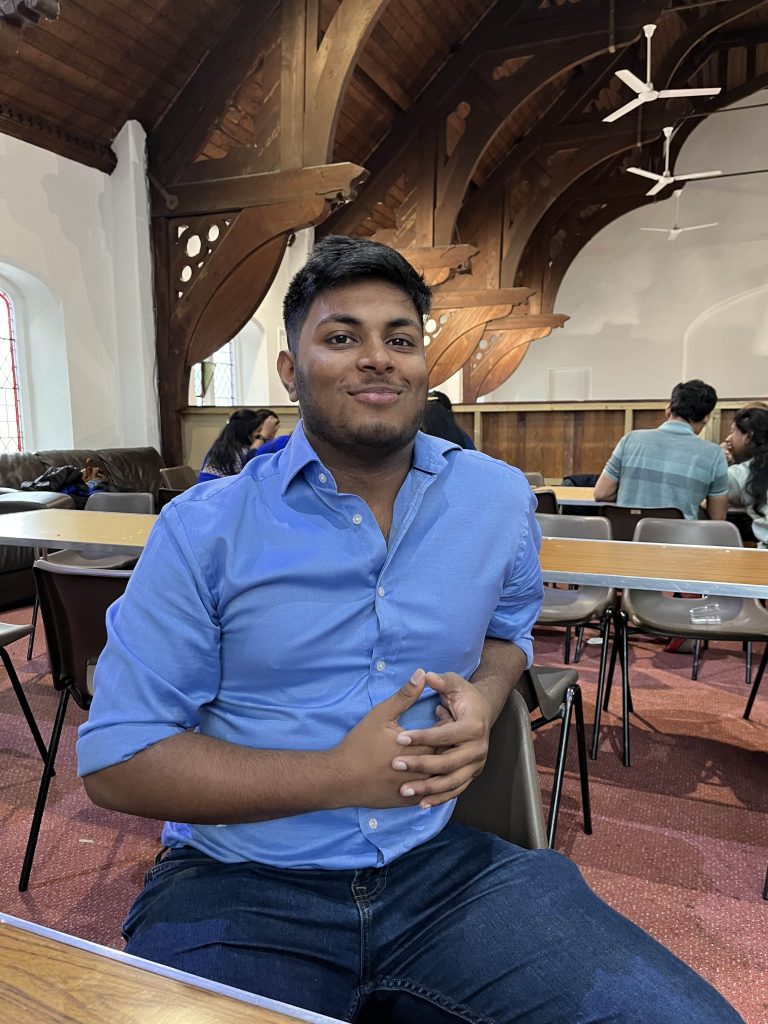
As young Tamils, going to church isn’t just to get closer to God, but to retain our culture and language.”
Jason Samson, college student, 17
Cardiff’s Tamil Church holds Tamil services on the first Sunday of every month at its Riverside church and every Friday at the Emmanuel Baptist Church in Gabalfa. Services at the Gabalfa church are bilingual.
Pastor Monickam maintains strong ties with local religious and cultural centres.
“On December 17, we hosted a nativity event for local communities who wanted to find out more about Christianity. Kids played, women danced, and food was served.
“It is important that we all unite, regardless of faith and culture.”
The community was due to hold a morning Christmas Day service on December 25, followed by South Indian dancing and Tamil carols.
Greek Orthodox Church, Butetown
NHS manager and Merthyr Tydfil native, 50-year-old Father Nicholas, recruits doctors in the week but serves his congregation on Sundays.
The King’s College London Classics graduate was raised Roman Catholic but found the Orthodox Greek Church through a family friend who’d married a Greek national.
Ideologically, the Greek Orthodox Church is similar to the Armenian Apostolic Church. They both celebrate Christmas on January 6 because they follow the Julian calendar rather than the Gregorian calendar that we’re used to.
Admitting that he won’t be able to hold down two roles forever, Father Nicholas will have to step down from his NHS job to focus on his devotion to God.
“The Greek Orthodox Church is the official state church in Greece, although things get a little trickier in Cyprus – Turkish Cypriots tend to be Muslim.
“The Greek community have been in Cardiff for 150 years now. This year is the 100th anniversary of our Archdiocese in Britain.”
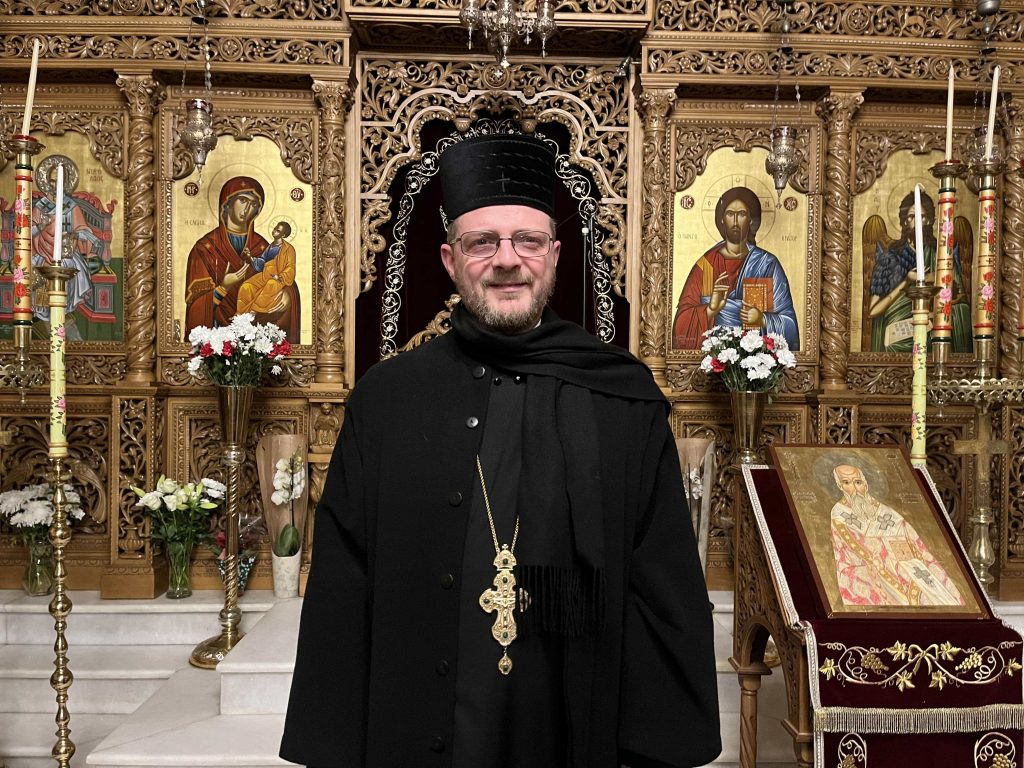
The Butetown church was built in 1906. Surrounded by plants, you’d be fooled into thinking you were in the Mediterranean had it been warmer when I visited.
Father Nicholas says he is unsurprised by the census findings above.
“The commercialisation of Christianity in the West has gone way too far now. Strangely, this hasn’t affected Easter in the same way. I really hope we don’t lose our youth to secularisation.
“People in Britain are no longer connected to religion. Instead, people plan Christmas parties months in advance. Even Atheists partake in excessive gift-giving.
“Greeks don’t tend to buy each other gifts or put up Christmas trees but this has become popular after settling in Wales.
“Ancient Greek tradition was to eat pork on Christmas Day, but I bet you most of the congregation eat turkey because they’re in Britain.”
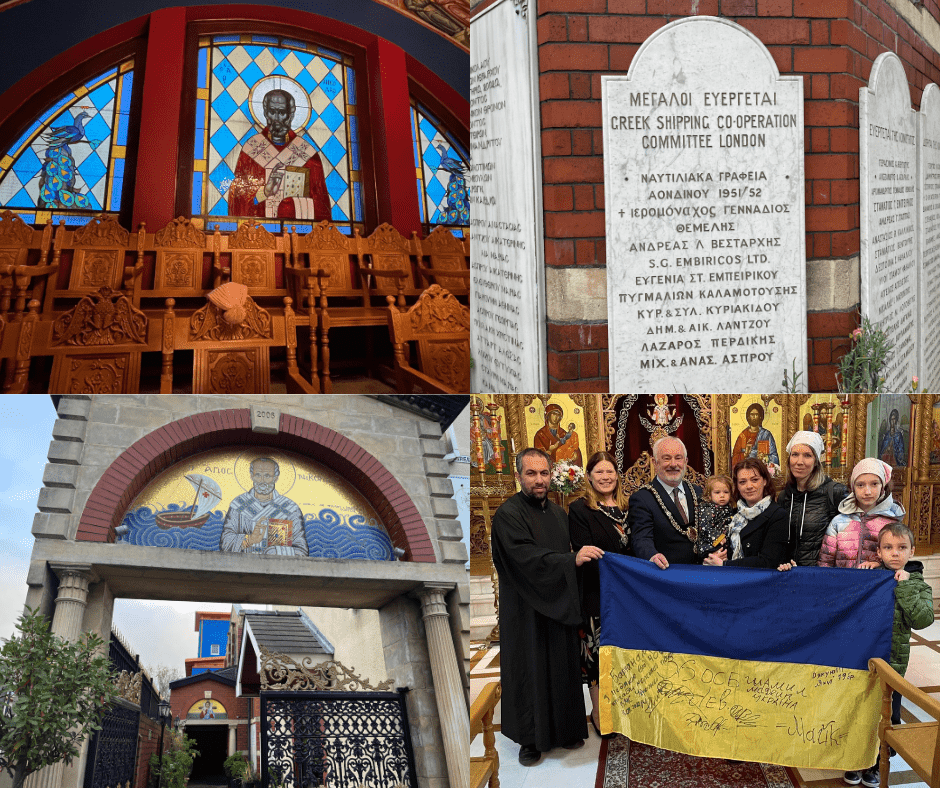
Photo credits: Zeenia Naqvee
The Greek Orthodox Church has an advent period where they refrain from meat until Christmas Day. The fasting lasts 40 days and commemorates Jewish patriarchs from the Bible.
Hymns are sung in church on Christmas Day, but carols are sung outside in community spaces.
The Blessing of the Waters service is conducted in the church to symbolise Jesus’ baptism in Jordan. It’s often conducted near open bodies of water.
This is a part of the Feast of the Theophany tradition in the Eastern Orthodox Church.
He speaks of the revival of Christianity in Eastern Europe after the collapse of communism.
“We have some Ukrainian refugees in our congregation, but many prefer to go to the local Russian Orthodox Church because they speak Russian and lots of our services are Greek-focused.
“But we provide the refugees with a sense of belonging. They’re displaced and need a strong community in times like this.”
The Christmas service will start at 8.45am on January 6 at the Greek Orthodox Church.
The Russian Orthodox Church, Cathays
A former teacher, Father Mark is a 54-year-old English man who grew dissatisfied with the Church of England.
“Ideologically, we are exactly the same as the Greek Orthodox Church – we also celebrate Christmas on January 6. Our differences are mostly cultural,” he said.
In the West, the arrival of the three wise men is celebrated on January 6 but they do this before, on December 25.
“Most of the differences we have from the West are in the way we prepare for Christmas Day,” explained Father Mark.
Before Christmas Day, his congregation observe Advent for 40 days. Observant members keep a vegan diet.
This Nativity Lent is broken by the Holy Supper on Christmas Eve. Hay is placed under a tablecloth to symbolise the manger in Bethlehem. The tablecloth is linen, the same fabric Jesus was wrapped in at birth.
Food includes honey, grains, soup, dumplings, and pickles. Food is vegan until Christmas Day.
There is a night service and vigil after the meal, followed by a morning service on Christmas Day. Services are conducted in Church Slavonic, a non-spoken church language also used in Ukraine, the Czech Republic and Poland.
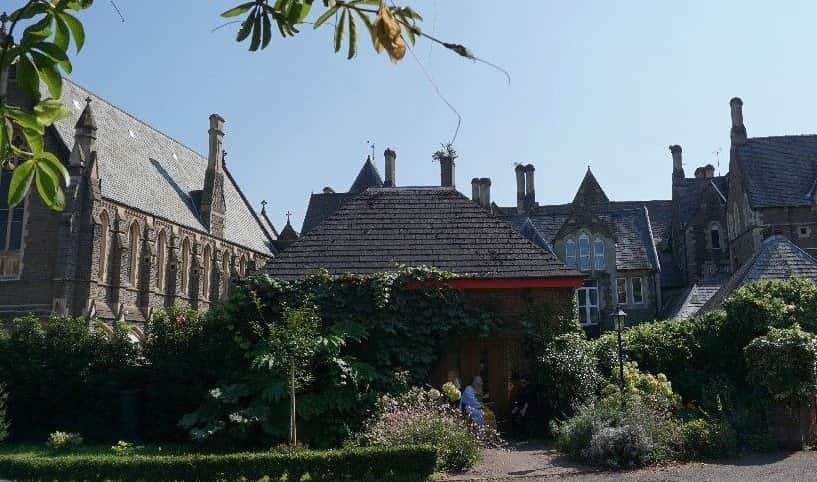
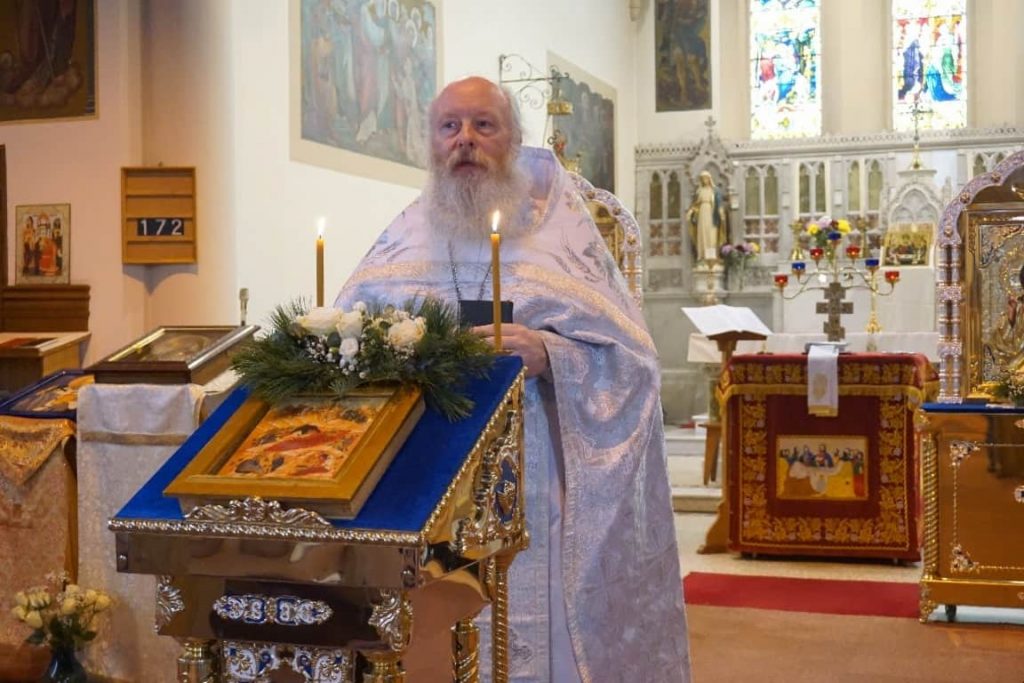
About half of the parish is white British so Father Mark is planning English services.
However, the Church Slavonic has proved successful in attracting Ukrainian refugees to the church and he’ll continue to use whatever language makes people feel most welcome.
“Communism banned any celebrations of Christmas, even Christmas trees. People were arrested and our traditions were sadly erased.
“Hopefully, the war in Ukraine will stop. We are constantly praying for the country’s safety.”
Father Mark’s church is temporarily based in a care home. Wanting to secure a permanent location, he is not hopeful – the cost-of-living crisis has made this unaffordable.
Each church’s website can be accessed below:


